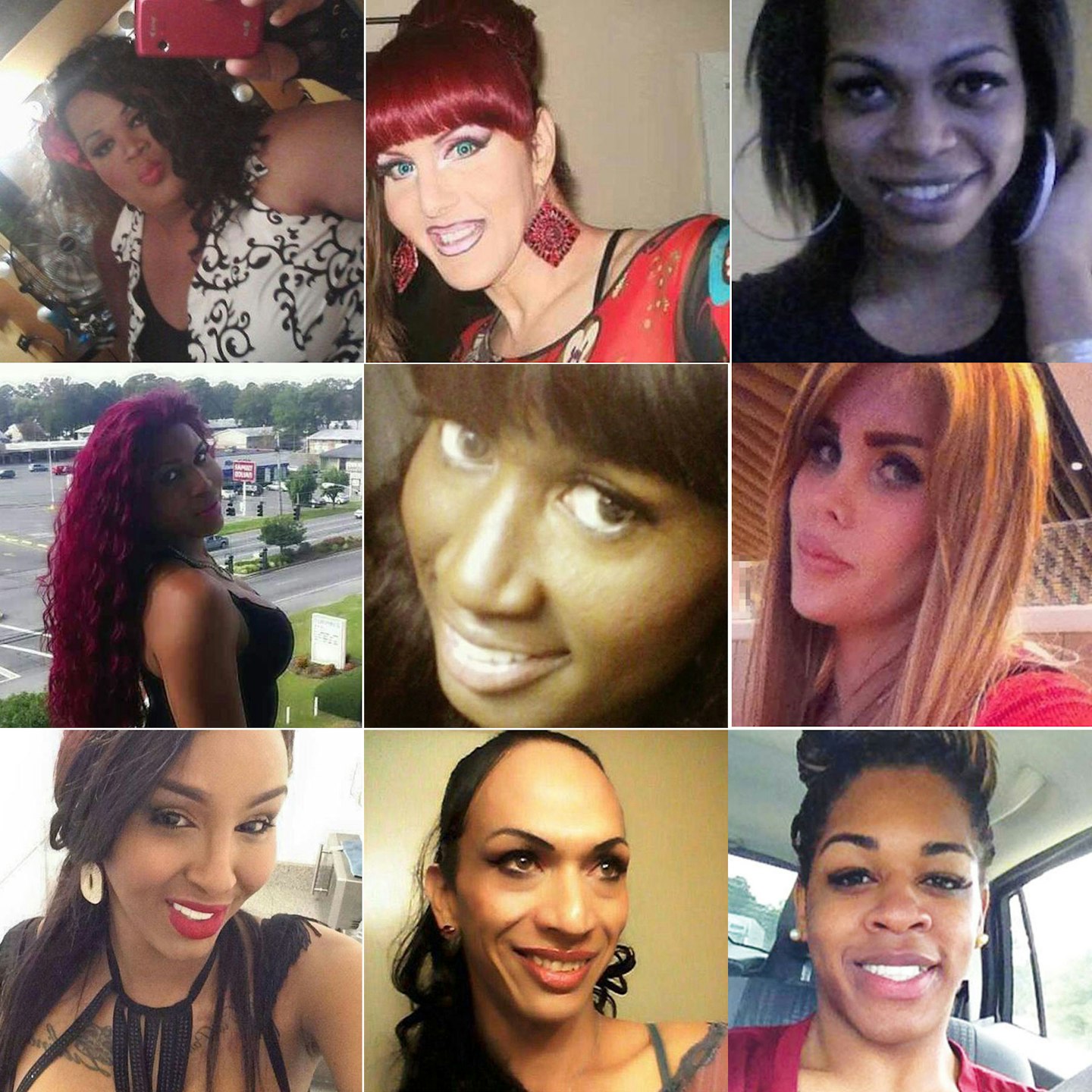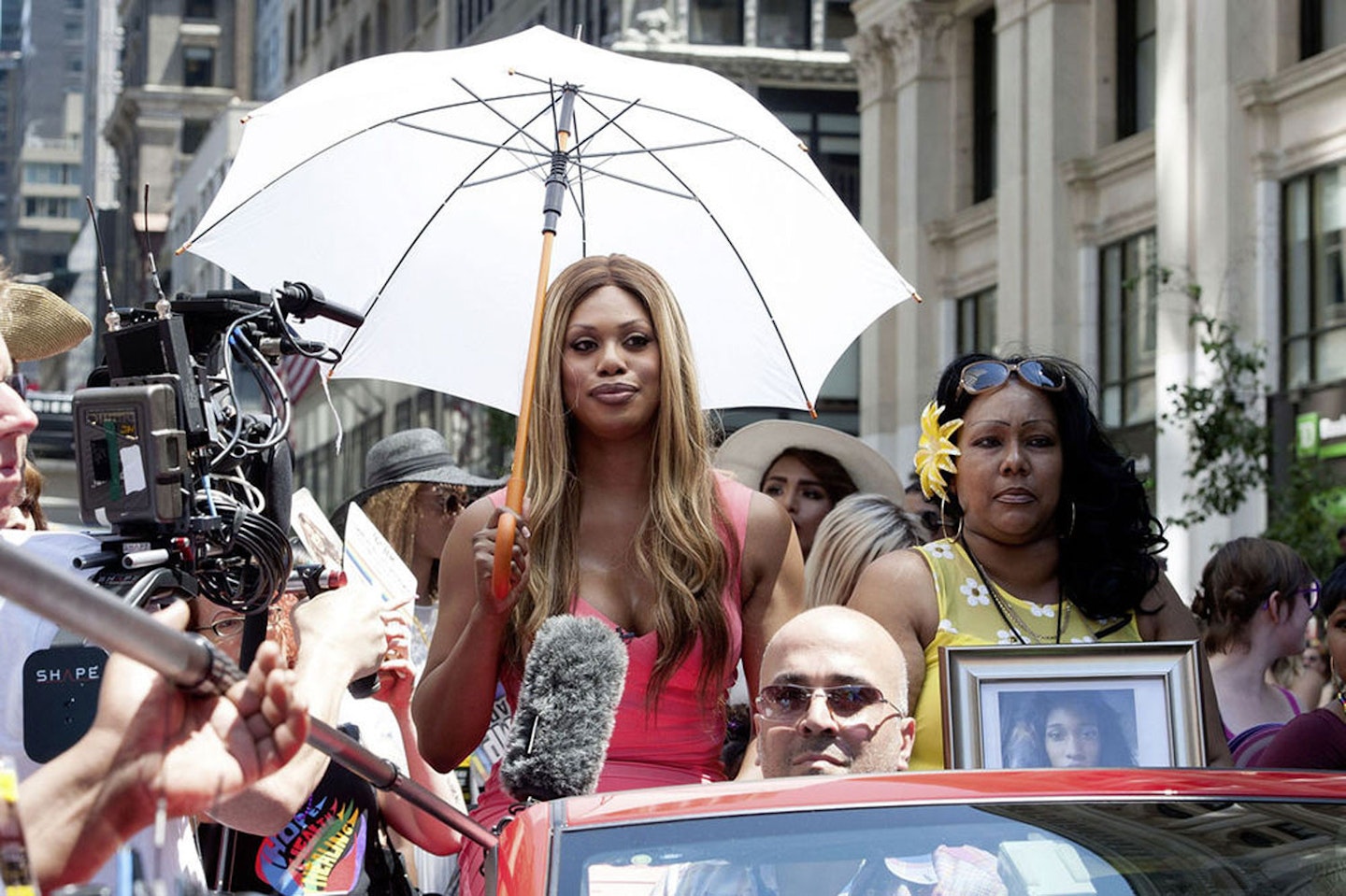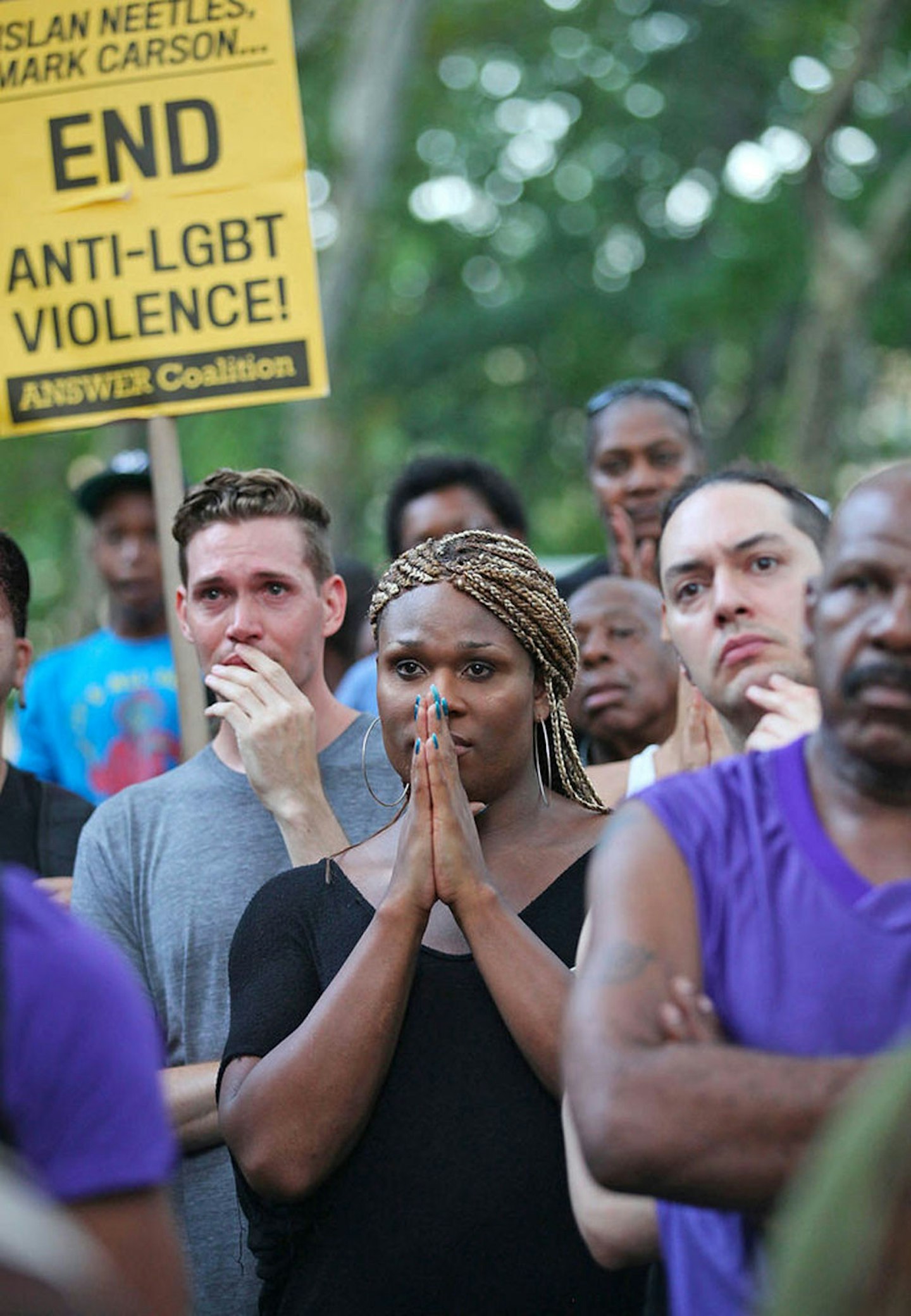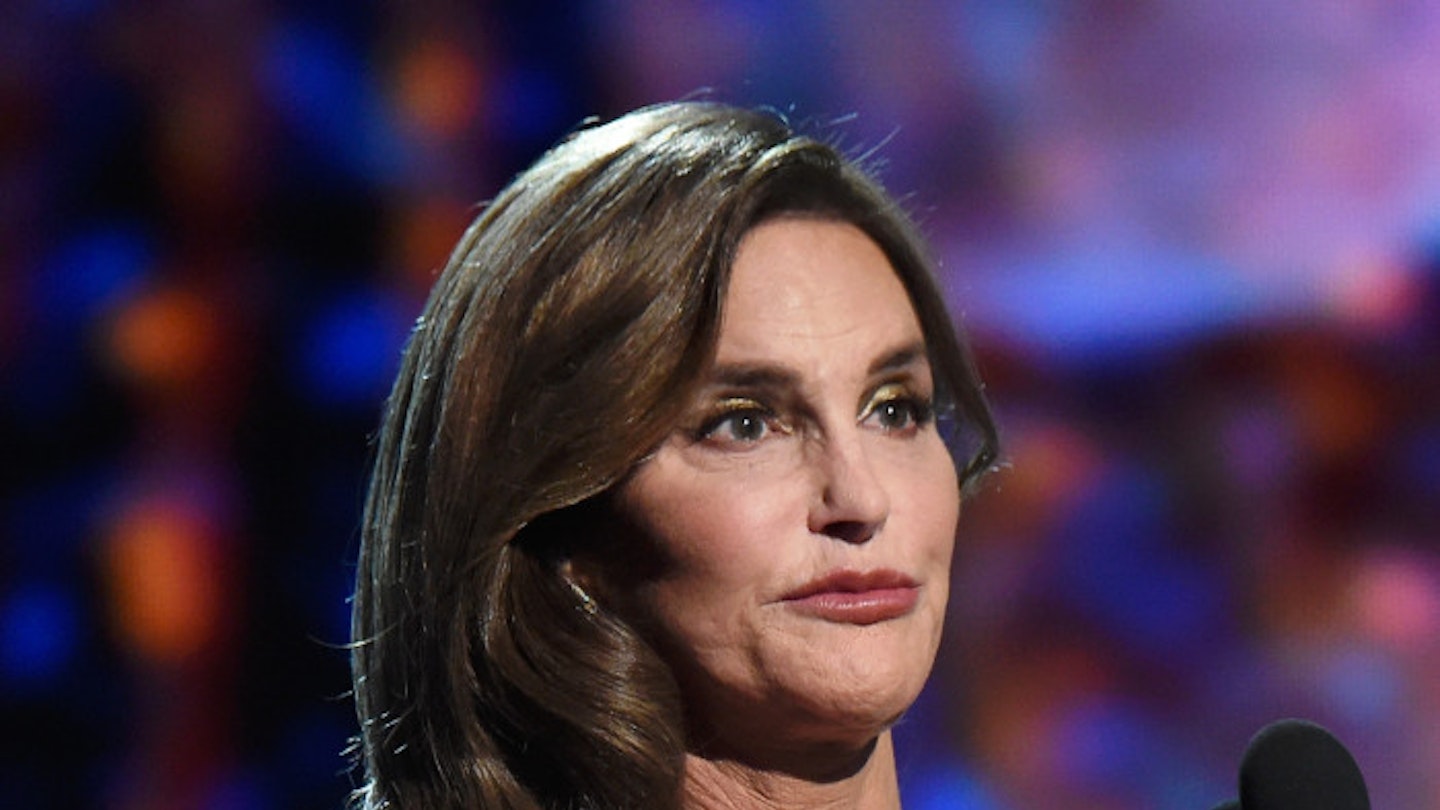When the world met Caitlyn Jenner, she received global support and many hoped this was the start of a positive 'Caitlyn effect' for equality. But while this is true, worrying crime statistics reveal that violence and murder against the trans community is rising, Polly Dunbar investigates...
On 8 August, Amber Monroe was found dead in a park in Detroit. It was the third time in her short life that the 20-year-old had been shot – the first time was in her arm; the second, her leg. This time she had no chance: the gun was fired point blank at her chest.
Amber’s friends describe her as a bubbly, charismatic young woman who ‘loved to dance’. Yet because she was transgender, she was also a target for violence. ‘Amber’s death was horrible,’ says her friend Julisa Abad. ‘But sadly I’ve seen so many terrible things happen to trans people: girls raped, being stripped naked and robbed, beaten, shot at. These things happen all the time.’
This year has been a milestone for the transgender community, with Caitlyn Jenner’s brave decision to come out being hailed as a pivotal moment in the world’s acceptance of trans people. However, a higher profile hasn’t always improved their safety – just the opposite. Amber was one of 21 transgender people, the highest number ever recorded, to have been murdered in the US this year.
Hatred, discrimination and violence remain the daily experience for thousands. Last month, Orange Is The New Black star Laverne Cox described the situation as a ‘state of emergency’, saying, ‘Your life should not be in danger simply for being who you are.’ The actress, who campaigns for transgender rights, posts pictures of every victim on her Instagram account.
According to the US National Coalition of Anti-Violence Programs, transgender people are by far the most at-risk group when it comes to violence. And in the UK, 12% of trans people suffered transphobic violence in 2014; 37% faced harassment: the second highest in any EU country.

Experts believe these figures are just the tip of the iceberg. ‘Very few transphobic hate crimes are reported to police,’ says Nik Noone, CEO of Galop, the UK-based LGBT anti-violence charity. ‘For instance, the Met Police generally records around 50 transphobic offences annually, but Galop is aware of individuals who experience 50 transphobic offences themselves each year.’
For many trans people, the fact that there are mainstream celebrities – from Caitlyn and Laverne to model Andreja Pejic and former boxing promoter Kellie Maloney – openly sharing their experiences has had a profound impact.‘The number of people who know what it means to be transgender has grown, which is positive,’ says Julisa, 31, who is a trans woman and a transgender rights activist.
But their increased visibility may also make them more vulnerable to attack.‘It’s a double-edged sword,’ says Julisa. ‘There are still many people who don’t accept transgender people, so having the spotlight on us can be dangerous.’ As she points out, for all her admirable courage, Caitlyn Jenner’s experience of life is worlds apart from the day-to-day reality for most transgender people. ‘She doesn’t have to think about how she’s going to go to the gas station or McDonald’s without people throwing bottles at her.’
According to Galop, transgender people in Britain face systemic discrimination at every stage of their lives, making them more likely to experience homelessness, unemployment and poverty. In the US, the problem is even more stark. Transgender people are four times more likely to reportliving in extreme poverty. This can sometimes force them into prostitution, which greatly increases their risk of violence. The risks are even greater for transgender women of colour: the vast majority of this year’s 21 murder victims were black or Hispanic. In many American cities, homeless shelters require trans individuals to identify by the gender they were assigned at birth, meaning trans women have to choose between sleeping in a room full of men or on the streets.

After Tamara Dominguez was murdered in Kansas City last month, the local newspaper reported it as the death of a man identified by police as Jesus Dominguez. Transgender advocacy groups say the police often record murders with the victim’s gender at birth, meaning the statistics for trans murders are likely to be far lower than the reality. It also means victims’ loved ones can remain unaware of what has happened to them, because their deaths are being reported using details that don’t reflect the person they knew.
In Detroit, Julisa works with young trans women in a neighbourhood known for drugs and prostitution, where many trans people congregate. ‘That’s where I met Amber, before her transition, when she was 16,’ she says. ‘I was trying to helpher avoid getting into prostitution, but unfortunately, she didn’t have many options. So many trans people are thrown out by their families, so they have to live on the streets. It’s so hard to get a normal job, even with a good education like mine.
'Caitlyn is brave, but she doesn't have to think about how to get to the gas station without people throwing bottles at her'
‘When trans women have suffered attacks, the police haven’t prioritised them. They’ll arrest girls for prostitution but if they say they’ve been robbed or raped, nobody’s listening.’
Julisa has known she was transgender since she was six. Her father has not spoken to her for 15 years as a result, but her job at a local charity, which provides housing, food and health services to people living in poverty, means she has avoided the fate that could all too easily have been hers. Her regular income means she can also afford hormone treatment and beauty therapies that many trans women have to do without, leaving them vulnerable to ridicule.
In Britain, hormone treatment is available on the NHS, but the type of sophisticated facial-feminising surgery that transformed Caitlyn is not. A substantial portion of the applause for her has focused on her beauty and stylishclothes, but, as Julisa says, ‘It’s even more difficult if you can’t look like that.’

Transgender advocacy groups believe work to help transgender people find education, employment, healthcare and housing is crucial to improve their lives and safety. Better education is also key to changing perceptions. As Laverne Cox said last month, ‘We need to make sure that trans lives matter.’
Julisa hopes eventually to start a charity specifically for trans women. ‘I want to help the next generation find opportunities so that they don’t have to put their lives in danger. Whatever you think of us, we’re somebody’s daughter or sister. All we want is to be ourselves. Nobody deserves to die for that.’
For support or to make a donation, visit galop.org.uk or gendertrust.org.uk
